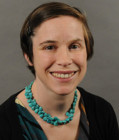How Educational Programs for Individuals from Conflicting Groups Can Promote Ongoing Efforts for Positive Social Change
Educational encounter programs for people from groups in conflict have long been used to reduce societal polarization. For both adults and children, such programs have been shown to change attitudes about the “other side” of the conflict. But pedagogical approaches deployed in these programs affect their outcomes. My research explores factors that make for effective programs and draws lessons from research in Israel to inform encounter programs in the United States.
Although encounter programs offering opportunities for participants to get to know one another can foster inter-personal relationships across social divides, some studies suggest that they may only encourage positive attitudes towards fellow program participants rather than toward members of the “other” group overall. Alternatively, programs that foster relationships between participants and directly address the issues at the heart of the polarization seem more likely to foster long-term engagement. Programs that address the polarizing issues head-on not only shape interpersonal ties but also create opportunities for participants to understand multiple worldviews. In some cases, they also develop a sense of self-efficacy that keeps participants engaged after programs end.
In my ongoing research with former participants in encounter programs, I find that programs that aspire to help individuals develop a multi-faceted understanding of polarizing issues can encourage continuing active engagement in social change initiatives. My research shows that two elements of program implementation are keys to enhancing participants’ critical awareness and fostering motivation to address difficult issues. Those key elements are modeling a positive vision of change and drawing connections between the personal experiences of participants and the roots of polarization.
Modeling Constructive Change
Among my research participants, I find that years, even decades, after participation in encounter programs, many alumni continue active involvement in initiatives for social change, including those that tackle the central contentious issues. Many credit participation in encounter programs with helping them believe in the possibility of change and gain faith in their own capacities to further positive transformations.
Program alumni particularly speak about the importance of the equality of members from of different social identity groups modeled within the encounter space, especially by program staff. This equality is important because it provides a positive example of a better social order. As participants gain hope that such equality might be reflected in their broader lived reality, they are motivated to speak up on behalf of that potential. My research thus suggests that providing an aspirational model for what can be, rather than focusing solely on as the problems the program seeks to solve, is an important way to inspire young people and motivate their continuing involvement in constructive socio-political efforts.
Tying Personal Experiences to Political Issues
My research also suggests that to be effective, programs addressing political divides need to connect issues to the personal experiences of participants. In other words, it is not enough to provide participants with abstract or macro-level knowledge of polarizing conflicts, if the goal is continued engagement in social change endeavors. An important aspect of motivating sustained involvement for positive change comes from connecting flashpoint issues to the personal experiences of participants.
Rather than beginning with a focus on political solutions to national problems, programs should start from the personal experiences of their participants and build from those experiences toward broader concerns. Although participants’ personal experiences may not directly tie into group conflicts, finding ways to connect personal experiences to systemic issues allows participants to see the links between their everyday lives and existing policies that maintain and reinforce social inequalities or polarization.
Implications
My research has primarily taken place in Israel with organizations that work to bring together Jewish and Palestinian citizens. However, similar educational efforts in the United States have a large role to play in addressing political polarization and broader societal reluctance to address it. My research suggests lessons for U.S. programs to successfully tackle polarizing conflicts:
- Focus on the substantive issues that are leading to polarization and controversy. Programs that evade and do not directly address the core of the conflict are far less likely to lead to ongoing engagement among participants.
- Strike a balance between addressing core polarizing issues that raise controversy and reaching out to participants "where they are." If participants feel they are being forced to adopt a different perspective, they are less likely to engage than if are instead exposed to information and the personal narratives of other participants in ways that allow them to gradually shift their own views.
- Make connections to the lives of participants. Using personal experiences as the starting point for discussing broader political conflicts or controversial issues lets participants see the connection between their own lives and systemic conflicts. This may motivate group members to look for ways to address divisive issues in new ways.
More research is needed, especially in the U.S. context, to explore possibilities for promoting social change through educational programs that bringing together participants from different sides of polarizing conflicts. However, it is clear that such efforts are needed in America as well as in other countries experiencing deep conflicts. The United States today can clearly benefit from innovative efforts to bring people together and transcend group and political divisions.
Read more in Karen Ross, Youth Encounter Programs in Israel: Pedagogy, Identity, and Social Change (Syracuse University Press, 2017).
